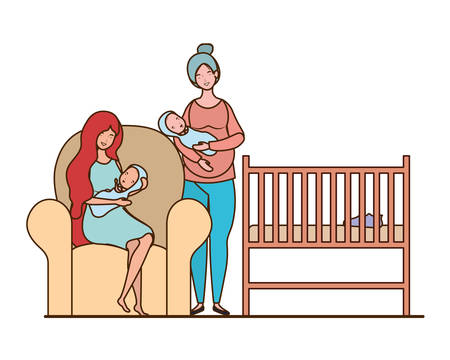Understanding Frequent Fevers and Coughs in Indian Children
As Indian parents, we often find ourselves worrying when our children repeatedly fall ill with fever and cough. It is a common sight in many households—kids missing school or playtime due to these recurring illnesses. But what really causes such frequent episodes among Indian children? Understanding the reasons can help us make better decisions for our childs health and growth.
Indias unique climate plays a significant role in childhood illnesses. From the humid monsoons in Kerala to the dry summers in Rajasthan, rapid weather changes often trigger viral infections among kids. During peak monsoon, waterborne diseases and respiratory viruses become more rampant, while dust and air pollution in urban areas like Delhi and Mumbai can aggravate coughs and breathing issues. These environmental factors, coupled with crowded living conditions in many parts of India, increase childrens exposure to germs.
In addition, cultural habits such as sending children to school even with mild symptoms or using public transport daily further raise the chances of infection spreading. Sometimes, poor indoor air quality from burning incense sticks (agarbatti), mosquito coils, or traditional chulhas can also contribute to frequent coughs.
As a concerned father myself, I have seen how these factors impact not just physical health but also the overall well-being of our little ones. Recognizing these common causes is the first step towards managing frequent fevers and coughs effectively. In the following sections, let us explore how these repeated illnesses may influence your childs growth and what steps you can take as a parent to minimize risks.
Traditional Beliefs and Home Remedies in Indian Families
When a child falls sick frequently with fever or cough, most Indian families do not rush immediately to the doctor. Instead, there is a strong reliance on traditional wisdom and home remedies that have been passed down through generations. Dadi-nani ke nuskhe (grandmothers remedies) play an essential role in how parents, especially fathers and mothers, manage their childs minor illnesses at home.
The Role of Dadi-Nani Ke Nuskhe
Elders in the family often have a treasure trove of natural remedies. For example, turmeric milk (haldi doodh), tulsi leaves, ajwain steam, honey with ginger, and various kadhas (herbal decoctions) are popular first-line treatments for coughs and fevers. These remedies are believed to boost immunity and offer relief without the side effects associated with allopathic medicines.
Common Home Remedies Used in Indian Households
| Home Remedy | Main Ingredients | Believed Benefit |
|---|---|---|
| Haldi Doodh (Turmeric Milk) | Milk, Turmeric | Reduces inflammation, boosts immunity |
| Kadha (Herbal Decoction) | Tulsi, Ginger, Clove, Black Pepper | Soothes throat, relieves cough and cold symptoms |
| Honey-Ginger Mix | Honey, Ginger juice | Relieves sore throat and cough |
| Ajwain Steam Inhalation | Carom seeds (Ajwain) | Clears nasal congestion |
| Tulsi Tea | Tulsi leaves, Water, Honey | Builds resistance to infections |
The Influence of Community Advice and Social Circles
Besides family elders, neighbours and friends also contribute advice based on their own experiences. In many cases, WhatsApp groups and local community forums become sources of suggestions for quick relief methods. This collective wisdom often shapes parental decisions before professional medical intervention is considered.
A Balanced Approach: When to Seek Medical Help?
While these traditional practices form the backbone of home care in Indian households, pediatricians advise that persistent or recurring fever and cough should not be ignored. Fathers play a key role in making balanced decisions—using home remedies for mild symptoms but seeking timely medical attention when symptoms persist beyond a few days or appear severe. Understanding when to rely on dadi-nani ke nuskhe and when to consult a pediatrician is crucial for ensuring both immediate comfort and long-term growth of the child.

3. Insights from Indian Pediatricians
When it comes to the question of whether frequent fever and cough can affect a childs growth, Indian pediatricians offer important perspectives rooted in their daily experiences. In clinics and hospitals across India, doctors often encounter worried parents whose children seem to fall ill with coughs and fevers multiple times each year. According to Dr. Meena Gupta, a leading pediatrician in Delhi, “Mild viral illnesses are common among Indian children due to changing weather, pollution, and close contact in schools.” However, she reassures parents that not every episode leads to long-term growth issues.
Most Indian pediatric experts agree that occasional fevers and coughs—especially those caused by common viruses—are generally not harmful to a childs overall development if the child is otherwise healthy and nutrition is maintained. Dr. Ravi Kumar, practicing in Hyderabad, notes that “Short bouts of illness may cause temporary drops in appetite or energy, but these are usually followed by catch-up growth once the child recovers.”
However, there is consensus among pediatricians that frequent or prolonged episodes—especially when accompanied by poor nutrition or chronic conditions—can impact a childs height and weight gain over time. In states where infections like tuberculosis or recurrent respiratory tract infections are more prevalent, doctors observe a higher risk of stunted growth if medical care or nutritional support is delayed.
Indian pediatric clinics emphasize the importance of monitoring a child’s growth chart regularly. Parents are encouraged to keep track of any significant weight loss or failure to gain height over several months, as this could indicate an underlying issue requiring investigation.
Pediatricians also highlight the role of environmental factors unique to India—such as air pollution in urban areas or seasonal changes during monsoon—that can contribute to increased frequency of illness. They recommend practical steps like maintaining good hygiene, ensuring complete immunization, and providing balanced home-cooked meals rich in proteins and micronutrients.
In summary, while most common childhood fevers and coughs do not lead to serious growth problems, Indian pediatricians advise parents to remain vigilant for signs of persistent illness and consult their doctor promptly if they notice any concerns with their child’s physical development.
4. Impact on Growth and Overall Development
As parents in India, it is natural to worry when our children frequently fall sick with fever and cough. Many of us wonder if these recurring illnesses can hinder our child’s physical and mental development, or even affect their school readiness. Let us explore what Indian pediatric case studies reveal about the impact of frequent fevers and coughs on a child’s growth.
Physical Growth: Height & Weight
Frequent minor illnesses are common among Indian children, especially during monsoon or winter months. According to a study conducted by the Indian Academy of Pediatrics (IAP), most short-term fevers and coughs due to viral infections do not have a significant long-term impact on height or weight, provided the child receives proper nutrition and care at home.
| Frequency of Illness | Impact on Height | Impact on Weight |
|---|---|---|
| Occasional (1-2 times/month) | No significant effect | No significant effect |
| Frequent (3+ times/month, >7 days each episode) | Mild delay possible if nutrition is inadequate | Slight weight loss, usually reversible |
| Chronic (almost weekly, hospitalisation needed) | Potential for stunted growth, needs medical intervention | Risk of underweight, needs paediatric evaluation |
Mental Development & School Readiness
Indian pediatricians observe that repeated short-term fevers and coughs—especially those managed at home—rarely cause lasting cognitive or developmental delays. However, if illness leads to prolonged absence from school or severe fatigue, some children may show temporary drops in concentration or academic performance. Supportive family involvement and communication with teachers can help children catch up quickly.
Case Study: Riya from Mumbai
Riya, a 6-year-old from Mumbai, had recurrent viral fevers during her first year at school. Her parents worked closely with their pediatrician to ensure she received nutritious meals and plenty of rest. Despite missing a few weeks of classes, Riya’s height and weight remained within the normal range for her age, and she caught up academically within a month after recovery.
Pediatric Advice for Indian Families
- Monitor your child’s growth chart regularly with your doctor.
- Ensure balanced homemade meals with local seasonal fruits and vegetables.
- Avoid unnecessary antibiotics for mild viral illnesses.
- If your child has frequent or severe illnesses, consult your pediatrician for underlying causes such as allergies or asthma.
In summary, while frequent fever and cough can temporarily affect appetite and energy levels, most Indian children recover well without any permanent setbacks in growth or learning—especially when families stay attentive and proactive in their care.
5. Role of Nutrition, Immunity, and Hygiene in Prevention
As Indian parents, we often worry when our children fall sick repeatedly with fever and cough. One of the most effective ways to prevent frequent illnesses—and their possible impact on a childs growth—is by focusing on three pillars: nutrition, immunity, and hygiene. Let us discuss how these factors play a crucial role in every Indian household.
Immunity: The Body’s Defense System
Strong immunity is essential for children to fight off common infections. According to leading Indian pediatricians, a child with robust immunity can recover faster from illnesses and is less likely to experience frequent episodes of fever and cough. Immunity develops over time and is influenced by genetics, environment, and most importantly, daily habits at home.
The Power of Balanced Indian Diet
A well-balanced diet is the foundation of good health. In our Indian context, traditional meals like dal (lentils), chawal (rice), sabzi (vegetables), chapati, and seasonal fruits provide vital nutrients. Protein from dals and pulses helps build antibodies, while fresh vegetables supply vitamins that boost immunity. Turmeric and ginger—common spices in our kitchens—are natural immune enhancers. Ensuring that children get all food groups in their meals makes them less vulnerable to infections.
Healthy Habits: Handwashing Matters
Instilling regular handwashing habits is one of the simplest yet most powerful tools against infection. Teach your children to wash hands before eating, after playing outside, and after using the toilet. This prevents germs from entering their system. Use mild soap and clean water—this small routine can make a big difference in reducing illness episodes.
The Importance of Vaccination
Vaccination protects children from serious diseases that can cause recurrent fevers or coughs. Follow the immunization schedule recommended by your pediatrician. In India, vaccines for diseases like measles, whooping cough (pertussis), and influenza are crucial for maintaining your child’s long-term health.
Bringing It All Together in Indian Homes
As fathers and mothers, our active involvement—preparing balanced meals, monitoring hygiene routines, and ensuring timely vaccinations—lays a strong foundation for our childrens health. These preventive measures not only reduce the frequency of fevers and coughs but also support steady growth and development in our uniquely Indian family setting.
6. When to Consult a Doctor: Indian Parents’ Guide
As Indian parents, we all want to keep our children healthy and safe, but sometimes it’s difficult to decide when home remedies are enough and when it’s important to seek professional help. Frequent fever and cough can be worrying, especially with our changing climate, pollution, and exposure to common infections in schools and playgrounds. Here are some practical tips for families to know the right time to consult a pediatrician:
Home Remedies: When Are They Enough?
In many Indian homes, dadi-nani ke nuskhe (grandmas remedies) like tulsi tea, honey, turmeric milk, steam inhalation, and kadha work well for mild coughs or low-grade fevers caused by seasonal changes. If your child is otherwise active, eating well, and doesn’t have other symptoms, you can observe at home for 1-2 days while providing lots of fluids and rest.
Warning Signs That Need a Doctor’s Attention
- High Fever: If your child’s temperature is consistently above 101°F (38.3°C), or doesn’t come down even after paracetamol or traditional methods.
- Persistent Cough: If the cough lasts more than 5-7 days or becomes worse.
- Difficulty Breathing: Noisy breathing, fast breathing, or chest in-drawing should never be ignored.
- Poor Appetite & Lethargy: If your child refuses food and water for more than 24 hours or seems unusually tired.
- Recurrent Episodes: Frequent fevers and coughs—more than 6-8 times per year—may indicate underlying issues that need evaluation.
Cultural Note for Indian Families
Sometimes, we delay doctor visits hoping things will improve with traditional cures. But remember: early intervention by a qualified pediatrician can prevent complications like pneumonia or growth delays. Trust your instincts as a parent. If something feels off—don’t hesitate to visit your doctor or local health centre.
Takeaway for Indian Dads & Moms
Your involvement makes all the difference! Encourage open communication with teachers about frequent illnesses, maintain vaccination schedules, ensure good nutrition (dal-chawal, sabzi-roti), and don’t forget regular handwashing habits. When in doubt, always reach out to your child’s doctor—better safe than sorry!

